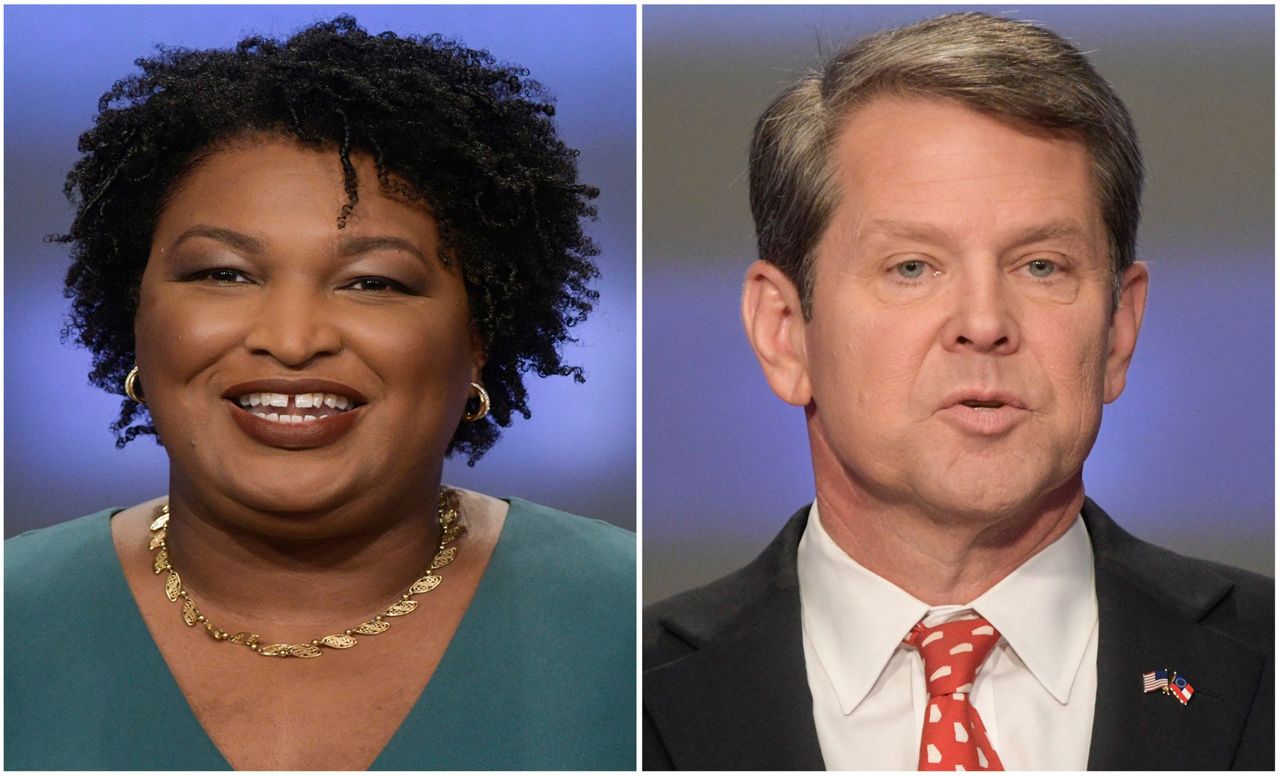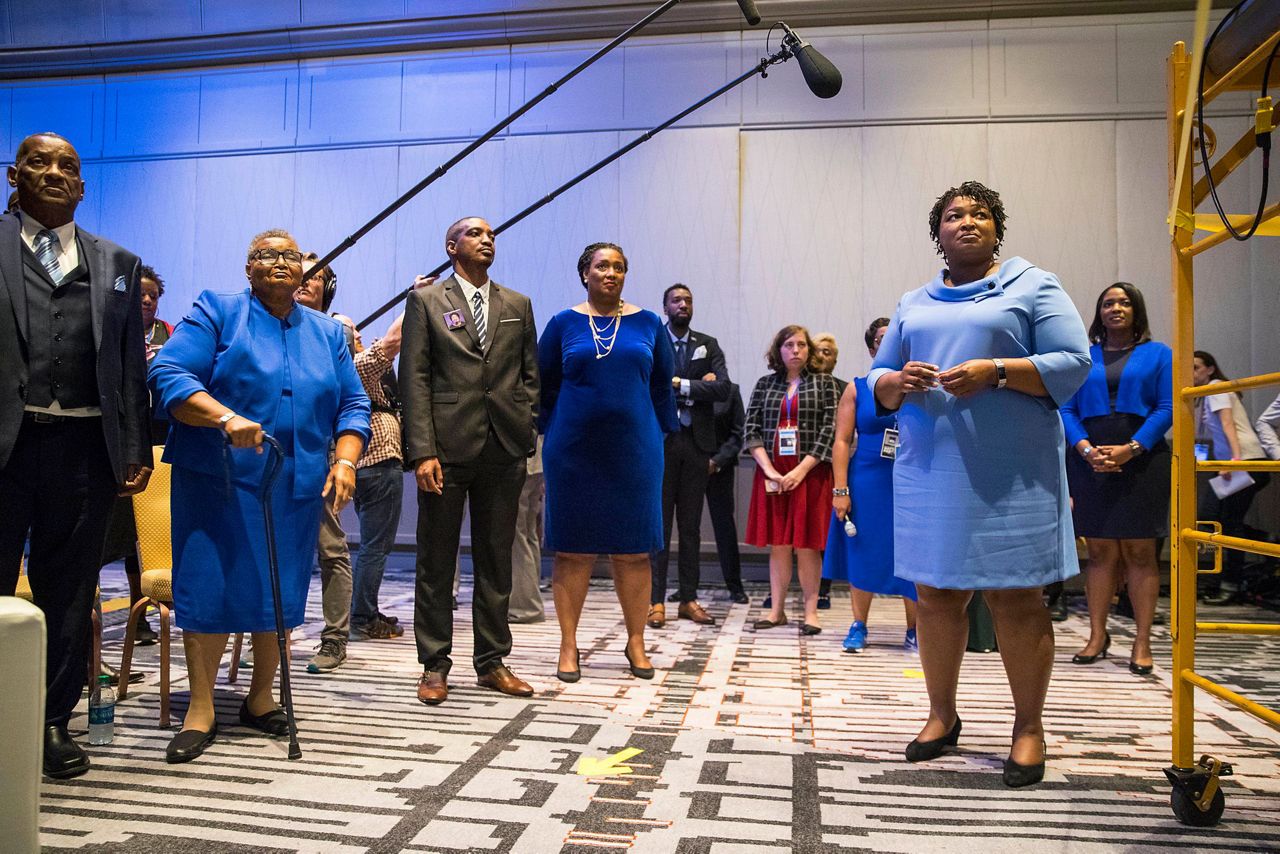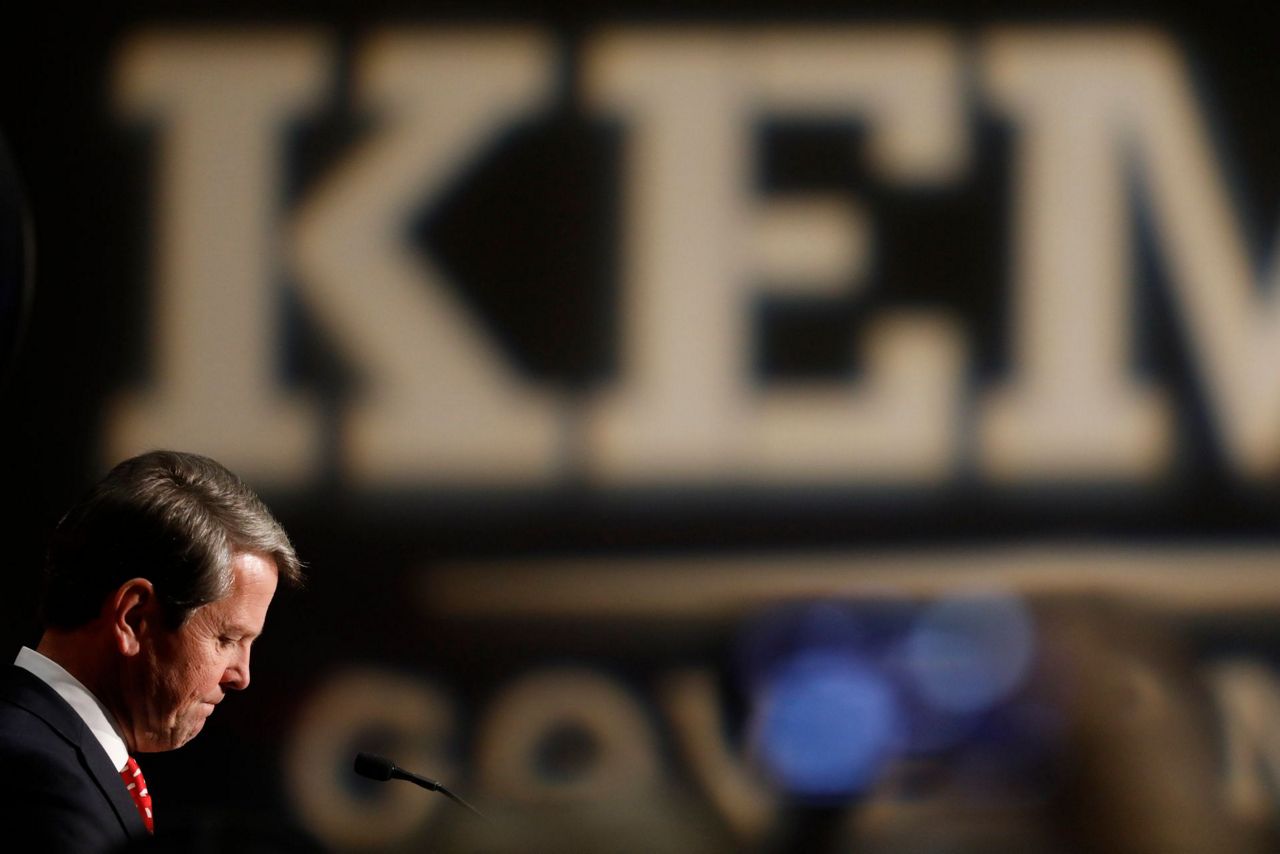ATLANTA (AP) — The Republican nominee has declared victory in a hotly Georgia governor's race, which he oversees as the state's top elections official.
His Democratic opponent says ballots remain to be counted.
Here's a look at what's happening in the contest between Republican Brian Kemp and Democrat Stacey Abrams one of the nation's top midterm matchups that pitted a disciple of President Donald Trump and the would-be first black woman ever to lead a U.S. state as governor.
KEMP DECLARES VICTORY; ABRAMS HASN'T CONCEDED
With more than 3.9 million votes counted, Kemp stood at 50.3 percent, enough for an outright victory under a Georgia law requiring a majority to win a general election without a runoff.
But the Abrams campaign maintains there are more ballots to be counted. Kemp doesn't dispute that; he just argues it's mathematically impossible for Abrams to pick up enough votes to pull Kemp below a majority. (A Libertarian candidate is taking about 1 percent of the vote.)
An aide in Kemp's state office said Wednesday afternoon that about 22,000 provisional ballots are left to count, with a high proportion — but not all — expected to be counted.
Abrams' campaign manager, Lauren Groh-Wargo, estimates her candidate needs a net gain of about 15,000 votes to force a runoff.
Kemp's campaign adviser, Ryan Mahoney, says that's mathematically impossible, but Groh-Wargo counters that the campaign isn't yet satisfied only 22,000 uncounted ballots remain.
She notes the estimate comes from Kemp's office, which she says should not be taken at face value considering the boss is on the ballot.
WHY THIS RACE IS IMPORTANT
Abrams' historic candidacy made this a race to watch from the start. She's already the first black woman in U.S. history to be a major party's gubernatorial nominee. In Georgia, one of the original 13 states, she'd be the first woman, and the first nonwhite governor.
Beyond breaking barriers, the matchup exhibits the nation's bitter partisan, ideological divides and underscores the cultural and racial fissures still lingering in the Deep South.
Abrams is a 44-year-old lawyer, former state legislative leader and moonlighting romance novelist who campaigns as an unabashed liberal. She promises to expand Medicaid insurance coverage and prioritize spending on public education, while endorsing tighter gun regulations and criticizing President Donald Trump's hard line on immigration.
Kemp is a 55-year-old two-term secretary of state who's echoed Trump's immigration rhetoric. He's flaunted his guns, chain saw and pickup truck in his campaign ads. He promises to "put Georgians first," blasts "fake news" and lambastes Abrams as a tool of "socialists" and "liberal billionaires" who "want to turn Georgia into California."
Both nominees framed the race as a "battle for the soul" of the state — a characterization supported by Georgians voting in numbers nearing their turnout for the 2016 presidential election.
The stakes are high enough that Trump and former President Barack Obama made opposing visits within 48 hours on the final weekend. Oprah Winfrey, the media icon who typically sits out politics, came to campaign for Abrams.
All this plays out in a Georgia on the cusp of becoming a true battleground state ahead of the 2020 presidential campaign. As governor, Kemp would be Trump's biggest cheerleader in a state the president won by 5 percentage points in 2016. Abrams would be among the most coveted endorsers in what's likely to be a crowded Democratic field of aspiring presidents.
WHAT HAPPENS NEXT
Kemp's aides say he's preparing his transition to take office in January.
Abrams' camp says it's leaving open "all options," including litigation.
So in a race already fraught with racial innuendos surrounding the voting system that Kemp runs, the coming days will likely be neither calm, nor quiet.
Abrams has called Kemp "an architect of voter suppression" for the way he's managed voter registration rules and elections. In outlining the possibilities of a runoff, the campaign attributed an apparent rise in provisional and paper ballots to a shortage of reliable voting machines, and blamed Kemp for the lack of preparation.
Kemp has insisted he's done his job and argued that Abrams wants to help noncitizens vote illegally. He cited a speech in which she listed "undocumented" people as being part of her coalition.
But Kemp also had to acknowledge within days of Tuesday's voting that the online voter registration system he oversees was vulnerable to hackers. When a whistleblower alerted a voting rights lawyer who alerted the FBI and Kemp's office of an apparent weakness, Kemp accused the Georgia Democratic Party, without offering evidence, of trying to tamper with the system.
Given that environment, it's not unreasonable to wonder whether Abrams' supporters will accept Kemp's claim of outright victory.
___
Follow Barrow on Twitter at https://twitter.com/BillBarrowAP.
___
For AP's complete coverage of the U.S. midterm elections: http://apne.ws/APPolitics
Copyright 2018 The Associated Press. All rights reserved. This material may not be published, broadcast, rewritten or redistributed.





